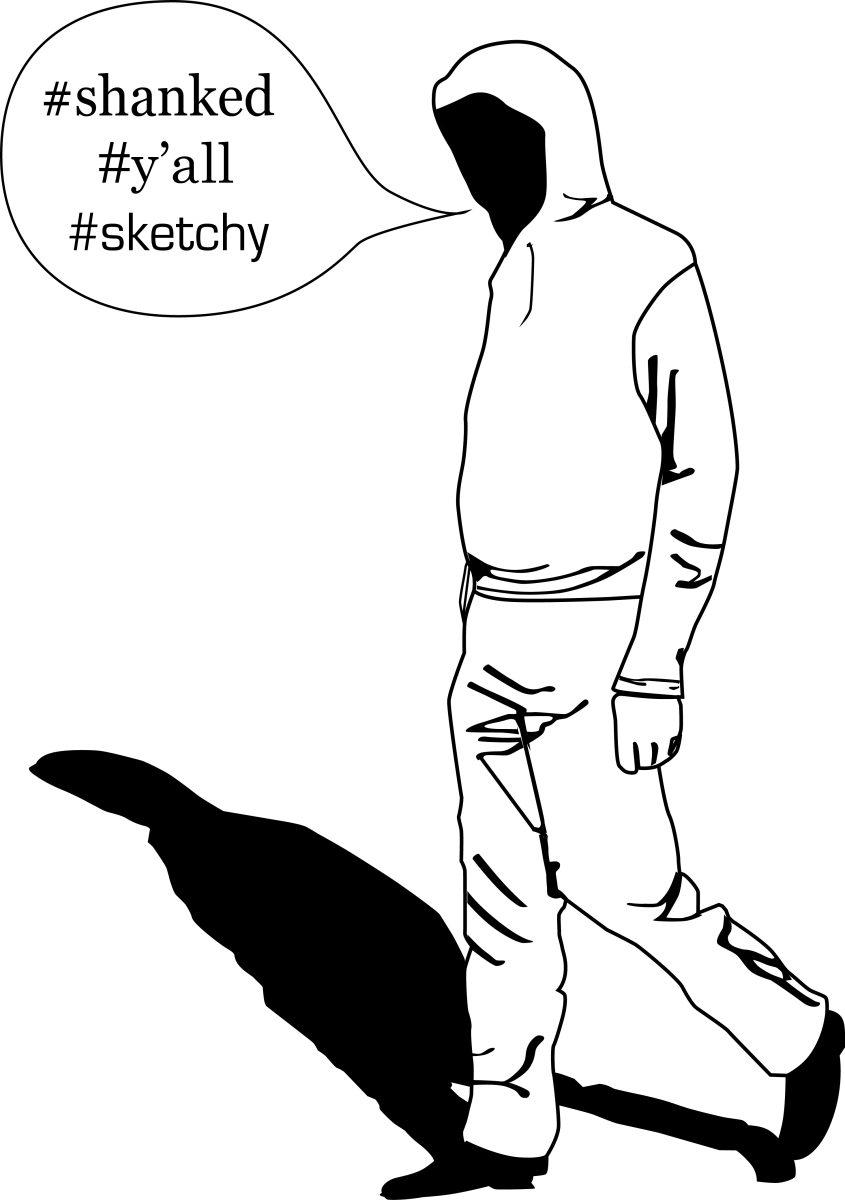Ponder the phrases, “he just got shanked,” “he better have his britches tight next time” or “only sketchy people do that.” What do they even mean? A majority of NC State students and faculty have talked with someone who says “you guys” or simply “you” instead of “y’all.” But is there really a correct way to express how someone wants to address a group of people?
Dialect can cause problems for both students and teachers alike, but they can also help show true style or identity to others in the Wolfpack through the way they speak. It makes a huge difference regarding interaction, judgement, appreciation and adaptation, even though people supposedly speak the same language. These prejudices culminate to the point where dialect becomes an inconvenient barrier, according to Walt Wolfram, English professor and director of the North Carolina Language and Life Project NC State students and professors described certain types of dialects as superior and defined other types as proof of lower intelligence and discretion. Dialect differences can cause microaggressions, according to Kevin Quick, a senior from Texas studying sociology.
“People always wanted to just sound intelligent,” Quick said. “Oftentimes, dialects can get in the way of understanding someone’s true personality and brainpower.”
Speaking too fast with a deep accent or slang could affect the understanding of a student or teacher who is not familiar with an unknown dialect. So, North Carolina natives beware: People from other states may have issues figuring out the way you communicate. Sarah Nelson, a southern New Jersey native and NC State alumna, said she did not understand when her new roommate was “fixing” to do something. She tried using context clues, but still could not comprehend what “fix” meant. Finally, she asked her roommate what she was trying to “fix.”
Dialects can vary on a geographical basis. Someone who comes from the Midwest and is used to saying “pop,” for example, might not exchange the word for “soda.” As Ryan Johnston, a senior from Ohio studying accounting said, “I won’t say soda!”
Ryan Ayers, a junior from North Carolina studying computer science, emphasized this situation by explaining that for others, getting a “coke” doesn’t mean they are going to get an actual Coke.
At the same time, different dialects can be a help to students around campus. Students such as Sara Knowlson, a junior studying chemical engineering, spend their first year in college seeking out other people with similar dialects. This way, the transition to college life is made with people who are in the same boat as they are.
“Having the different dialect brought me and my friends together,” Knowlson said.
Students who have different dialects can also consider their uncommon way of speaking as a conversation piece, according to Knowlson.
“Over time, I began to appreciate the differences in language through talking to different people on campus,” Knowlson said.
She said she also began to create inside jokes with people because of the language difference, using native words that she knew growing up as a way to create good humor with her friends.
The NC State community shouldn’t see a different dialect as an obstacle, but an opportunity, according to Wolfram.
“Language diversity is one of our richest resources, and we should celebrate it,” Wolfram said.
Wolfram also explained students and teachers alike should understand that diversity is what makes others special, and makes them lasting images in people’s heads.
“Without diversity in something like language, people at NC State would be more forgettable,” Wolfram said.
Knowlson gave a piece of advice for students with a unique way of speaking: Don’t be on the defensive front.
She said she started out her freshman year being defensive and found that it was better to explain things than to shield herself. She also suggested that out-of-state students try to understand other students. Faculty at NC State can be unfamiliar with what they are saying or could have absentmindedly created a stereotype of certain dialects.
She recommended for out-of-state residents to use this to their advantage as a way of getting to know people.
On the flip side, Knowlson said that “non-North Carolinian students shouldn’t be afraid to ask somebody to repeat themselves or ask them if they understood you.”
She noted that out-of-state students will not learn the language if they do not ask about what people are saying or if people are understanding them.
“Language is a powerful thing,” Wolfram said. “Use your own unique way of saying things as a way to express who you are in college.”
If you would like to learn more about the NCLLP or language diversity, take a look at their website and video:
Website: http://www.ncsu.edu/linguistics/ncllp/
Video: http://www.ncsu.edu/linguistics/campusdiversity.php








